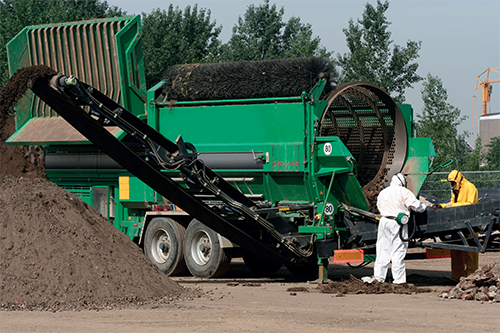
Optimal Timing for Engaging a Remediation Specialist in Construction Projects
Undertaking a construction project is extremely complex with many contractors involved, but there is an optimal time to engage each one that can lead to more collaborative working, and reduce uncertainty and costs. This article shall help you determine the optimal time to engage a remediation specialist.
Many would assume that the remediation contractor should be involved in the project at the earliest possible stage, however, there are a number of challenges to this. To make the right decision, you need to consider the ‘Who’, the ‘How’ and the ‘When’.
In construction, every business brings different skills and experience to the table. Therefore, certain projects and issues are better suited to certain contractors. As a result, a potential obstacle to early contractor involvement (ECI) would be not knowing which contractor is best suited to advise on the project or get involved in the work. This is particularly true where the scope of the project is not well defined at such an early stage.
Depending on the identified issues, it is possible to create a tentative shortlist of suitable contractors. The market includes groundwater specialists, asbestos in soil specialists, materials management specialists, generalists and many others.
Again in selecting the remediation contractor, it’s important to have one eye on what comes next. For example, the procurement strategy for the project may include the remediation/enabling works contractor undertaking reduced level excavations for development or pile mat preparation. These considerations should be made when selecting a shortlist of contractors.
Another challenge which could arise from ECI is potential dissenting voices. Asking a diverse group of contractors for their views may give unhelpfully diverse responses unless there is real clarity on what the project goals and objectives are.
So if the earliest stage is too soon to involve a remediation contractor, when is the right time?
To answer this, let’s go one step further down the line and work on the basis that we have engaged a good consultant to define what needs to be achieved. This will have been determined by carrying out design work (of the end product; not how the end product is achieved), and  establishing the robust minimum of remedial action required. In other words they should bring to bear all the tools at their disposal to ensure that the contaminated sites are not over remediated.
establishing the robust minimum of remedial action required. In other words they should bring to bear all the tools at their disposal to ensure that the contaminated sites are not over remediated.
This initial design should be part of an iterative process between the consultant, the client and other stakeholders (including the remediation contractor). The high-level remediation strategy is a good point to begin conversations with contractors to get their perspective.
Assuming that the remediation strategy has focused predominantly on the end product and not the methodology, then this is a very good time to engage with remediation contractors. However, it is worth pointing out that ‘how’ the contractor is engaged with is just as important as ‘when’. Engagement can range from an invitation to critique the strategy to the provision of budget costs or a program for discussion. This is often provided free of charge to curry favour with the client. At the point where a formal pre-construction service agreement (PCSA) is signed, the contractor(s) is paid to undertake further studies and develop proposals.
There are advantages and disadvantages to both the paid and unpaid approaches. If the client is paying for advice, they may have to limit the number of opinions sought, however if unpaid, the contractor may wish to retain certain IP or safeguard the opportunity or position going forward.
Traditionally, a strategy is produced and the contractor is engaged with at the point of tender. This inevitably leads to several different approaches to achieve the same end: a variety of value engineering proposals and potentially a difficult and lengthy adjudication process. This also runs the risk of the best solution presented only being legitimately costed by one or a few of the tenderers.
To get around this, some opt for a two stage tender process whereby after a first round, as described above, the tendering pool is reduced to a select few who then refine the scope of works based upon tender returns received.
The disadvantage of this approach is that it may extend the overall tender program significantly and ultimately, the costs of tendering are borne by clients if not on the job in hand then as an overhead cost that is carried across the industry to participate in potentially abortive tendering activity.
So when is the best time to go to a remediation contractor?
ECI can work well if it is structured i.e. the consultant can issue a high-level strategy and ask specific questions of the remediation contractor on behalf of the client. This provides clarity and also prevents a significant potentially abortive activity for the contractor.
The alternative option – the use of a PCSA – is very effective in determining the scope of the remediation project and finalising costs. However, it doesn’t lend itself as a competitive precursor to an open tender as invariably the incumbent PCSA contractor has better knowledge than others (and may be tempted to report in a limited fashion for a competitive gain). PCSA is therefore best used when the contract has been selected and the quantum of works needs refining.
The most effective engagement strategy, in our opinion, is to rely upon the consultant to handpick a suitable list of contractors based on the likely scope of works who then undertake prescriptive ECI on a short form basis. This then leads into a two stage tender process. Critically, the first stage of the tender process should also invite the contractor to issue a risk and opportunity matrix along with measures to mitigate risk or to capitalise on those opportunities in a fully costed and transparent manner. This approach leads to a suitable early ‘light touch’ involvement by the contractors, maximising their input, before a focussed tender process is carried out. This should then result in optimal solutions at a competitive price.

Joe Jackson is Managing Director of Jackson Remediation, a remediation and enabling works specialist, focused on contaminated land assessment and remediation design, remediation construction and enabling works and waste management. Founded by Joe Jackson, a remediation expert with over 20 years of experience in contaminated land and brownfield development, the company’s mission is to improve the reputation and quality of remediation contracting in the UK, whilst delivering at the best price possible. This is made possible thanks to the team’s laser focus on value creation and quality delivery, drawing upon their deep technical expertise and profound understanding of the construction process
For more information, please see:
www.jacksonremediation.co.uk